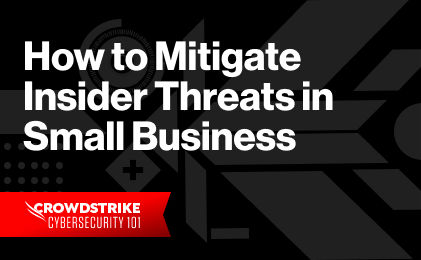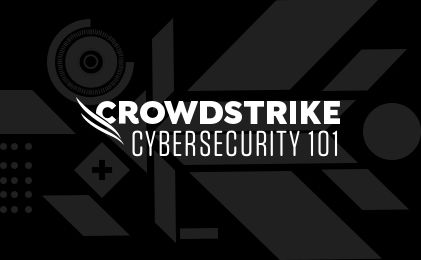As your company’s IT operations grow, it’s critical to have cybersecurity experts on your team to protect your business from cyberattacks. Cybersecurity specialists play a key role in securing your organization’s information systems by monitoring, detecting, investigating and responding to security threats. So how should you go about bringing top cybersecurity talent to your company?
Here are some key things to consider.
Determine the Best Hiring Method for Your Business
Decide how you want to bring cybersecurity experts into your company — this is typically done either by hiring in-house talent or outsourcing to a third-party vendor. Each approach has pros and cons, so let’s have a look at the factors you’ll want to consider:
Hire In-House Security Talent
Hiring in-house talent and building your own cybersecurity team can be very rewarding. The recruitment requires a lot of time and effort, and of course, this approach is an investment for the long term.
Considerations:
- You can control and shape every aspect of your security operations.
- You’ll get a deep understanding of the business operations so that your program can be a strong business enabler.
- You can immediately initiate response efforts if there’s an incident.
- You may experience a higher cost to enlist an in-house IT team.
- Given the competitive talent market, it can be harder to hire and retain seasoned cybersecurity practitioners.
- Your in-house team will need to manage and prioritize all phases of your IT operations, including coverage for security issues that arise after hours and on weekends.
Outsource Security to a Vendor
Outsourcing your security needs provides a lot of advantages. In fact, the 2022 ISC(2) Cybersecurity Workforce Study found that 48% of organizations choose to outsource security services, while the 2024 study emphasized that economic pressures and the rise of AI are leading to workforce growth slowdowns and rising skill gaps.
Considerations:
- You’ll save the expense of hiring talent and acquiring and managing security tools, which gives you greater financial efficiency.
- It’s easier to scale up as your company grows and your needs change from one year to the next.
- You immediately get a team of security experts who have the experience and know-how to safeguard your organization.
- You get quick entry-to-market and avoid the time, cost and staffing barriers of hiring an in-house team.
- With outsourcing, by nature you’ll be handing over some level of control to your vendor.
Whether you choose to outsource or build an in-house team, the next step in hiring great cybersecurity talent is knowing exactly who to look for.
Know Which Cybersecurity Roles You Need to Fill
Cybersecurity professionals typically start as generalists and then specialize in a specific area as they gain more experience in the field. As you embark on your candidate search, you’ll want to consider where your business needs the most cybersecurity support, such as:
- Cloud security
- Data loss prevention
- Application security
- Incident response and forensic analysis
- Network security
- Endpoint protection
- Threat intelligence
- Vulnerability management
- Penetration testing
- Internet of Things (IoT) security
- Critical infrastructure security
- Secure DevOps
Having a good idea of the type of cybersecurity specialist you need will help you focus your search in a way that helps you attract the right candidates to protect your business.
Learn More
The good news for SMBs is that establishing a strong security posture is within reach. Our cybersecurity checklist will help you uncover any risk areas and identify opportunities for improving the security of your operations.
Tailor Your Job Descriptions for Cybersecurity
Your job description should include the specific type of work, skills needed and the purpose of the security role as it relates to your overall IT operations. Distinguishing between required and preferred skills will help your candidates determine if they’re qualified and ideally prevent some candidates from being too intimidated to apply in the first place. Keep in mind, it can be a competitive talent market, so don’t be afraid to let your company culture and what makes it special come through in your job postings.
| Required Skills | Preferred Skills |
|---|---|
| Experience working within information security infrastructure | Self-motivated and able to work calmly and methodically under pressure |
| Strong technical security understanding, especially in the area of specialty for which you’re hiring | Flexible approach to incorporate changing priorities |
| Experience participating in and resolving technical security issues | Adaptable and keen to learn new skills |
| Cooperative, service-oriented individual and collaborative team worker | Exceptional levels of personal integrity and ability to communicate clearly, both verbally and in writing |
Not every candidate will have a cybersecurity background, and that’s OK. If you’re not getting as many applications as you’d like in your initial search, consider generalizing some of the required skills where possible, which will make your job description more accessible to a wider talent pool.
Retain Your Cybersecurity Talent
According to the 2024 (ISC)2 Cybersecurity Workforce Study, 4.8 million professionals are needed to effectively secure organizations worldwide. With so much opportunity in the market, your candidates will surely be interviewing with multiple companies. To differentiate your organization and attract top talent, there are several factors that stand out for cybersecurity job seekers:
Career growth. Opportunity for job growth is an important factor for cybersecurity candidates. In fact, 30% of security professionals make a job switch when they feel they don’t have room to grow. Make sure to highlight what the three- to five-year career path could look like for your candidates during the interview.
Team culture. IT is a team sport, so it’s critical to foster a collaborative and supportive team environment. A positive culture will go a long way in attracting and retaining your cybersecurity talent.
Flexible work arrangements. Cybersecurity is a demanding job that can often lead to burnout. To balance the demands of the field, organizations can help maintain high job satisfaction by offering remote work opportunities. Over half of security professionals would consider switching jobs if they were no longer allowed to work remotely. Offering job flexibility might just be what makes a candidate choose your company over a competing offer.
Remember, hiring is only half the equation. To help you keep the great cybersecurity talent you need to protect your business, make sure to prioritize your workplace culture, company values and working environment. You might run a small business, but your team can have a huge impact.
Learn more about CrowdStrike Falcon® Complete Next-Gen MDR
With CrowdStrike’s managed cybersecurity, CrowdStrike Falcon® Complete, you get a team of security experts dedicated to securing your business for guaranteed protection backed by the industry’s strongest breach prevention warranty. Because your small business deserves major protection.







